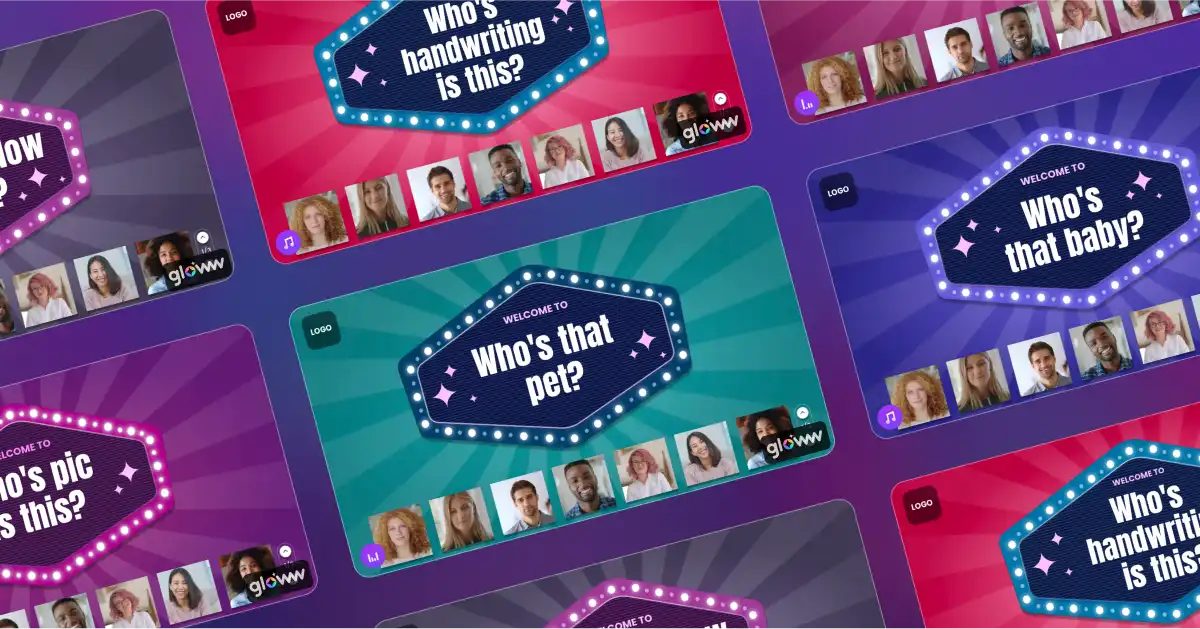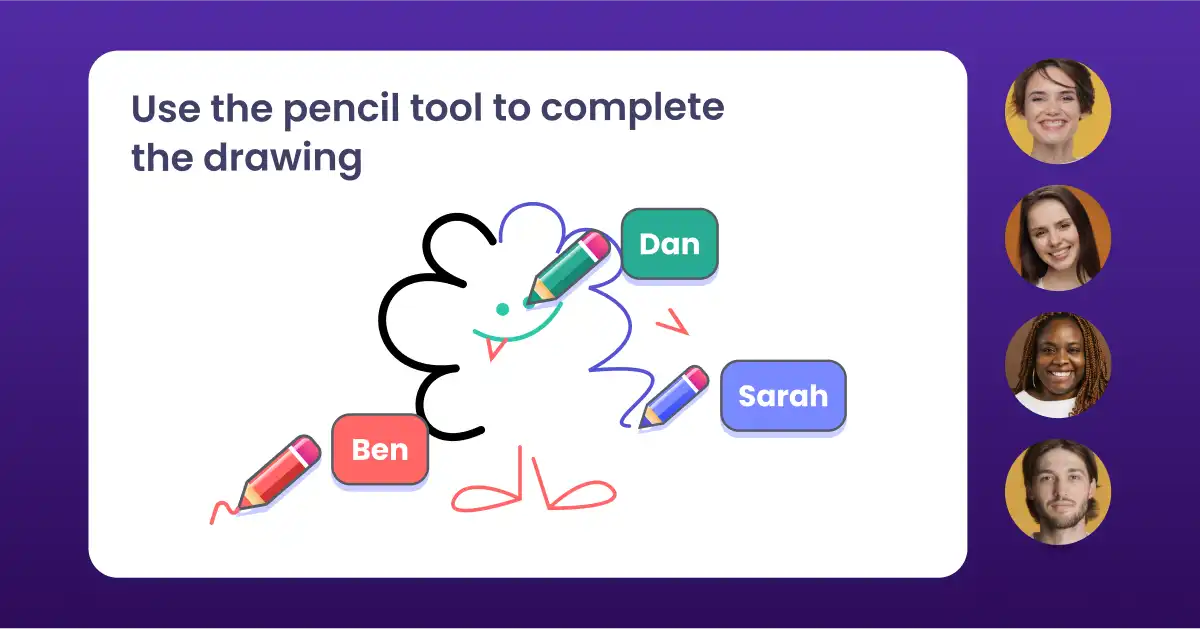Actors have been using improv exercises for years to help hone their craft. However, improv games have much broader applications. With a little bit of tweaking, improvisational games can be turned into memorable team-building activities. What’s more, many of them are a perfect fit for remote workforces. Thinking about using improv exercises for team building? Read on for everything you need to know.
What Are Improv Games?
Improv games are essentially any challenge or activity where you go off-script. An improv game puts players on the spot, forcing them to use every ounce of imagination to come up with answers, suggestions, or replies.
Why Are Improv Games Great for Team Building?
Improv games make excellent team-building activities and are great for testing your employees with out-there scenarios. They’ll ignite imaginations and inspire creative thinking, while many improv exercises can help refine emotional intelligence and make it easier to identify non-verbal cues.
Improv activities also encourage active listening. This is an essential skill for workplace communications, but can also help your employees fine-tune their approach to difficult clients and unhappy customers.
15 of the Best Improv Exercises
Eager to infuse your next online team-building activity with some improv? Below are some of the best improv exercises you can play virtually.
1. One Word Story

One person kicks things off by saying a starter word before someone else takes over by offering a word that connects. This carries on until everybody has offered their input and you’re left with a finished piece of prose. A word association alternative that’s great for large groups.
2. Party Crasher
Assign players to breakout themes, set a theme, then ask them to create a persona to act out. Get your cues from famous monarchs, celebrated artists, or even superheroes. Give everyone ten minutes to mingle, then mix up the rooms a little, with everyone maintaining their previous persona.
3. Customer Service Training

Everyone has to deal with a tricky customer at some point. This improv game is a great way to train your teams to deal with those client encounters they’d rather avoid. Pick two employees at random, charging one with playing the role of a customer who’s always right and never happy.
4. What’s the Solution?
Pick two people at random, assigning them an A or a B. The A starts off by suggesting a problem, with B then tasked with picking an item from a list of pre-selected items as a potential solution. If A thinks they can work with it, they then have to explain how the item is the perfect fix for the problem they created.
5. Storytelling Improv
One player starts with a long sentence or opening description, passing the batten onto the next person who has to further the story. Keep the chain going until everyone has chimed in with their input.
6. Group Counting Game
Have a group count upwards from one, with only one person speaking at a time. Anyone can say the next number, but only one person can speak at a time. If there are any interruptions, the count resets to zero and the group has to start from scratch.
7. Quick-Fire Questions

A round of quick-fire questions will encourage remote colleagues to open up and break the ice. You can ask questions about pretty much anything, from favorite dishes to dream travel destinations. The only rule here is that everyone has to provide an answer when asked.
8. Where Am I?
Ask everyone to come up with a general and identifiable location, such as a theme park or supermarket. Each player then takes a turn to act out a scene from their chosen location, without relying on verbal cues. Everyone else then has to guess just where exactly their colleague is.
9. Recreate the Photo
Put together a gallery of images. They could be iconic portraits, famous movie posters, or even vacation snaps your team has sent. Show your team an image, then give them a couple of minutes to search their home for impromptu props to recreate what they’ve seen as faithfully as possible.
10. What’s Going On?
Split your team into two even groups, with one half going on mute. The other half then have to act out a scene you set them. Muted players then have to use non-verbal cues to guess what’s going on.
11. What’s Another Use For…?
Each person takes it in turns to grab an object from their home office, before presenting it to the rest of the team. Everyone then takes turns coming up with new uses for the item in question. You can carry on looping through your team until nobody can come up with fresh ideas.
12. Alphabets
Come up with a loose scenario for a scene, then start things off with a sentence beginning with A. Hand things over to someone else, who then needs to add a second sentence beginning with B. The third person throws in a new line starting with C, and so on.
13. What’s Your Excuse?
Start things off by leveling an accusation at your team, such as why they’re late for an important meeting. Players then take it in turns to come up with the most elaborate excuse possible, with suggestions getting increasingly outlandish.
14. Three Heads Are Better Than One
To play this improv game, start by splitting your team into groups of three. Each trio is then asked a difficult question by someone else, which they then have to answer collectively. What makes this game so difficult is that they can only answer one word at a time.
15. Perfect Sales Pitch
Pick one participant to play salesperson, assign them an everyday object, then get them to come up with the sales pitch of their lives. Once everyone has had a turn at pitching, use a virtual poll to find out which player your team thought was the true sales superstar.
Top Tips for Running Effective Improv Games
Don’t have much experience with improv games? Below are some handy tips to bear in mind.
Agreement is Key
The best improv scenarios have conflict at their core. Make a sales pitch scenario as tricky as possible with the most mundane of items. Customer service scenario? Make sure it’s the customer from hell doing the complaining.
Normalize Mistakes
There’s no right or wrong answer when you play an improv game. Reminding your teams of this so the more introverted among you don’t shrink away from participating in improv games.
Encourage Listening and Group Participation
Keep improv audiences engaged by getting them to weigh in on the best performances by using live polls. If you want to push them further, ask audience voters to explain their decisions.
Inspired Improv Games with Gloww
Improv games are one of the most enriching team-building activities around. However, you’ll need a first-rate video conferencing solution if you want to pull off an improv-inspired team-building session.
With Gloww, you’ve got everything you need to create memorable events loaded with improv exercises. Create a custom session from scratch or use ready-made templates if you’re in a hurry. Liven things up with games, or bring in interactive elements for maximum employee engagement.
Get started with Gloww right now, or explore our premium pricing tiers if you’d like to unlock our advanced features. Need more information about how Gloww can help you? Get in touch with the team today.








































